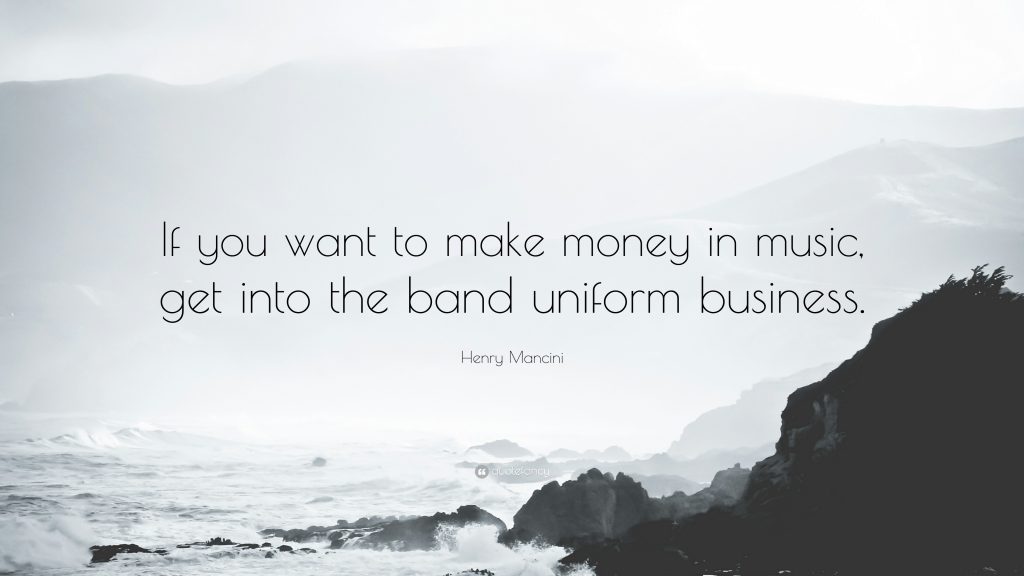Henry Mancini (1924-1994) was an American composer, arranger, and conductor. He is widely regarded as one of the greatest composers of film music in history, and his work is recognized as some of the most influential in the industry. He won four Academy Awards, a Golden Globe, and twenty Grammy Awards. His career spanned over four decades, from the early 1950s to the late 1980s, and he composed music for numerous films, television shows, and albums. He is best known for his jazzy and melodic scores for films such as The Pink Panther (1963), Breakfast at Tiffany’s (1961), and Charade (1963). His other famous works include the themes of popular television shows such as The Ed Sullivan Show, The Tonight Show, and The Love Boat. He also wrote the iconic theme song to the popular television series Peter Gunn (1958), which is still widely recognized today.
| Name | Henry Mancini |
| Date of Birth | April 16, 1924 |
| Genre | Jazz, Classical, Pop, Easy Listening |
| Instruments | Piano, Clarinet, Flute |
| Notable Works | “The Pink Panther” Theme, “Moon River,” “Peter Gunn,” “Days of Wine and Roses” |
| Awards | 20 Grammy Awards, 4 Academy Awards, Golden Globe Award, Emmy Award |
10 Best Henry Mancini Quotes
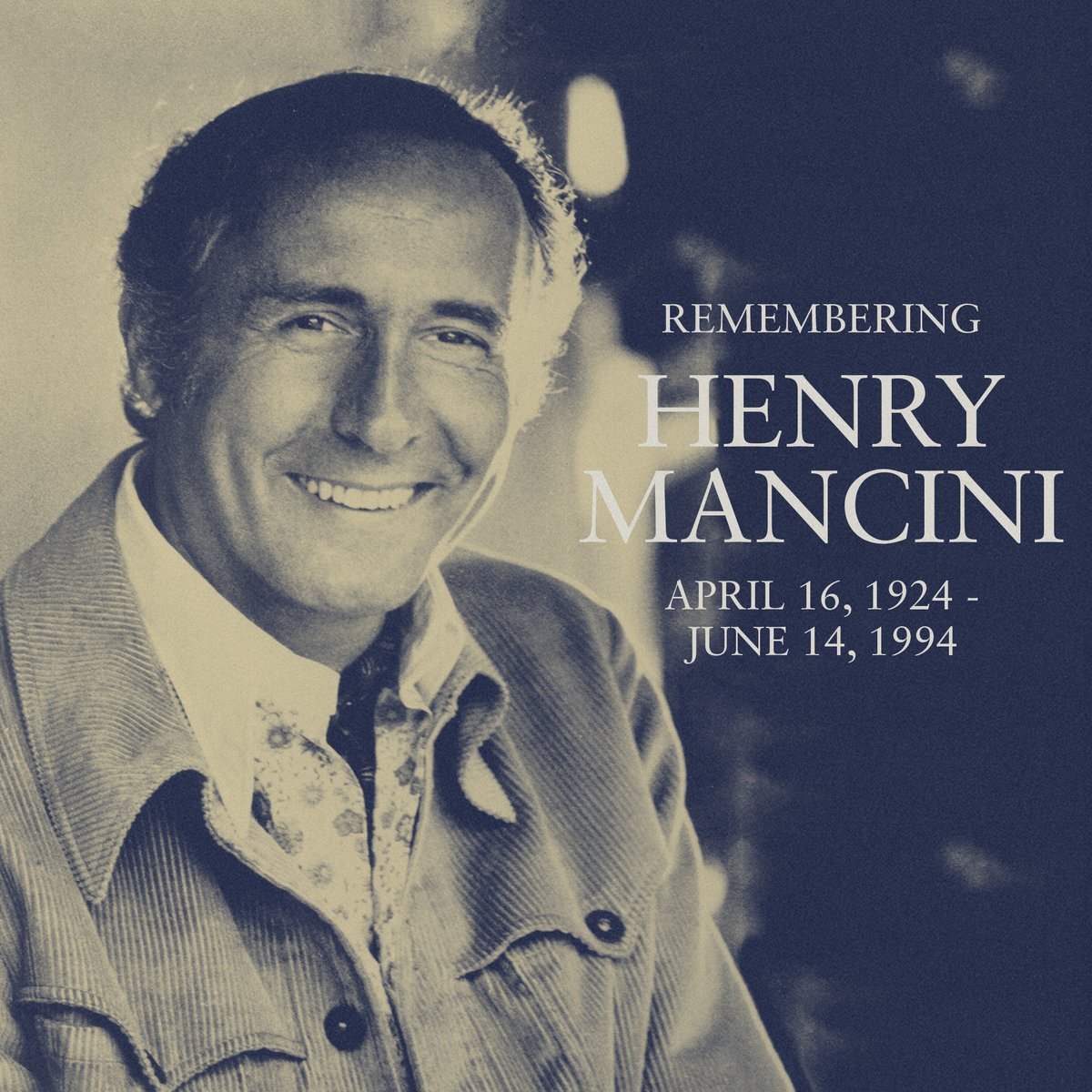
1.
“I think it’s important to have a good understanding of the theory of music, but I also think it’s important to be able to express yourself musically.”
– Henry Mancini, from Questia
2.
“I’ve always been interested in music, ever since I was a child. I was always fascinated by the power of music to evoke strong emotions.”
– Henry Mancini, from Grammy.com
3.
“I would have to say, one of the greatest thrills for me was when I heard my music on the radio for the first time.”
– Henry Mancini, from Discogs
4.
“I think my scores are very much a part of the style of the film. I try to make it as effective as possible, but at the same time, I try to remain true to the director’s vision.”
– Henry Mancini, from AllMusic
5.
“I think the most important thing for a composer is to have a good understanding of the story and the characters.”
– Henry Mancini, from HenryMancini.com
6.
“I think it’s important to be able to communicate musically, and to be able to express yourself in your own musical language.”
– Henry Mancini, from ClassicalMPR
7.
“I think it’s important to be able to express yourself musically, to create a unique sound that is your own.”
– Henry Mancini, from HenryMancini.com
8.
“I think it’s important to have an understanding of the theory and structure of music, but also to be able to express yourself musically.”
– Henry Mancini, from Questia
9.
“I think the most important thing for a composer is to be able to communicate musically, to be able to express himself in his own musical language.”
– Henry Mancini, from Discogs
10.
“I think it’s important to be able to communicate musically and to be able to express yourself in your own musical language.”
– Henry Mancini, from AllMusic
7 Inspirational Henry Mancini Quotes
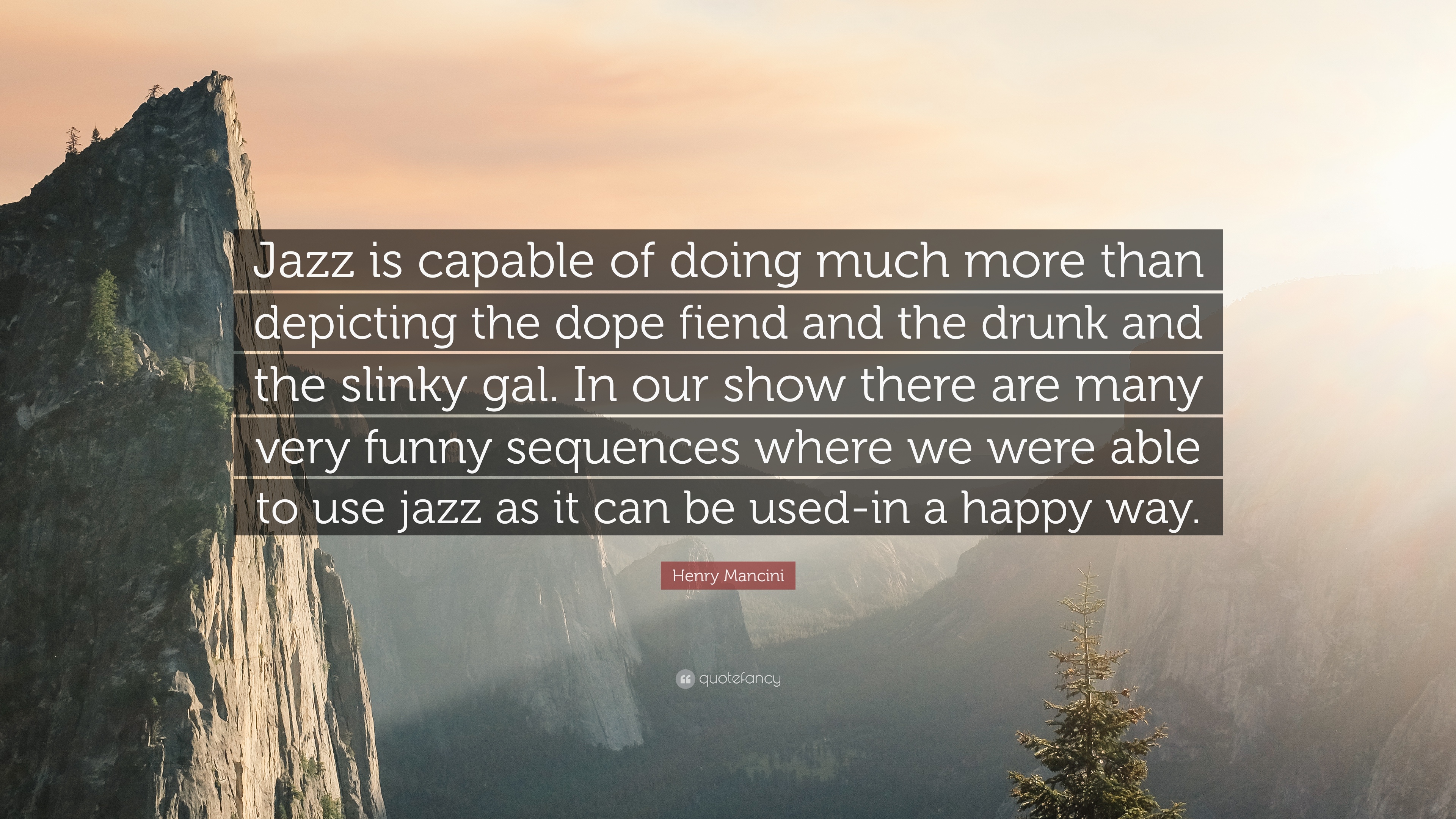
“I think what I’ve done is to create my own language within music, and I think that’s something that all composers strive to do.”
– Henry Mancini, from Grammy.com
“I don’t think I’m a great musician, but I think I’m a great arranger, and I think I’m a great melodist.”
– Henry Mancini, from Grammy.com
“Music is a language that communicates the feelings of the composers.”
– Henry Mancini, from The Hollywood Reporter
“My goal was always to try to be as honest in my music as I could.”
– Henry Mancini, from The Hollywood Reporter
“I think that’s probably the most important thing in writing music—to be honest, and to be true to your own style.”
– Henry Mancini, from Grammy.com
“I always believed that the more musical ideas I could get into my head, the better off I’d be.”
– Henry Mancini, from Grammy.com
“You have to give something of yourself to the audience.”
– Henry Mancini, from Grammy.com
5 Famous Henry Mancini Quotes
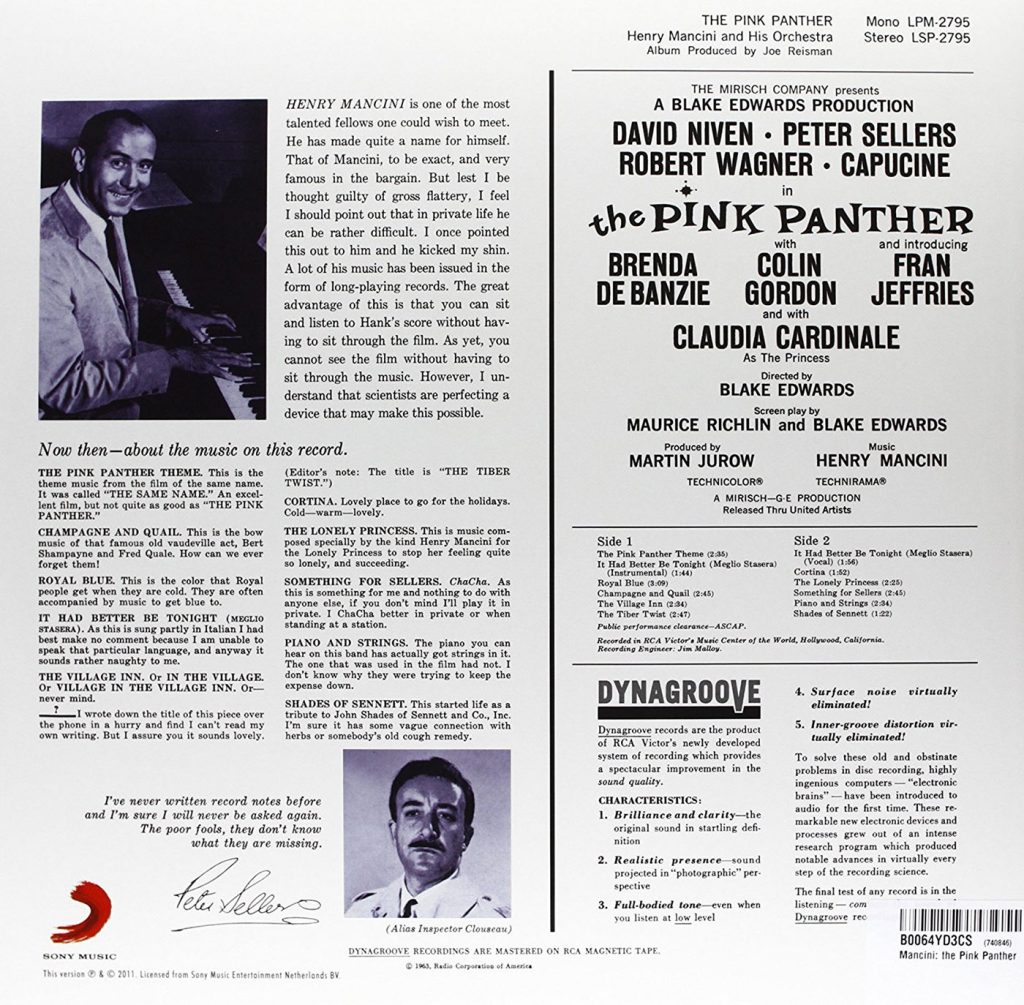
“The only way to be successful in music is to be sincere and honest.”
– Henry Mancini, from Grammy.com
“I have to have a melody. I don’t care what the lyrics are; it’s the melody that will make the song work.”
– Henry Mancini, from Grammy.com
“The best music is the music that makes you feel something.”
– Henry Mancini, from uDiscoverMusic
“I think it is the most important thing to have a good melody. Every song needs a good melody and then you can build around it.”
– Henry Mancini, from YouTube
“I think it is important to be creative and to find a way to express yourself musically.”
– Henry Mancini, from Interview Magazine
7 Henry Mancini Quotes About Love
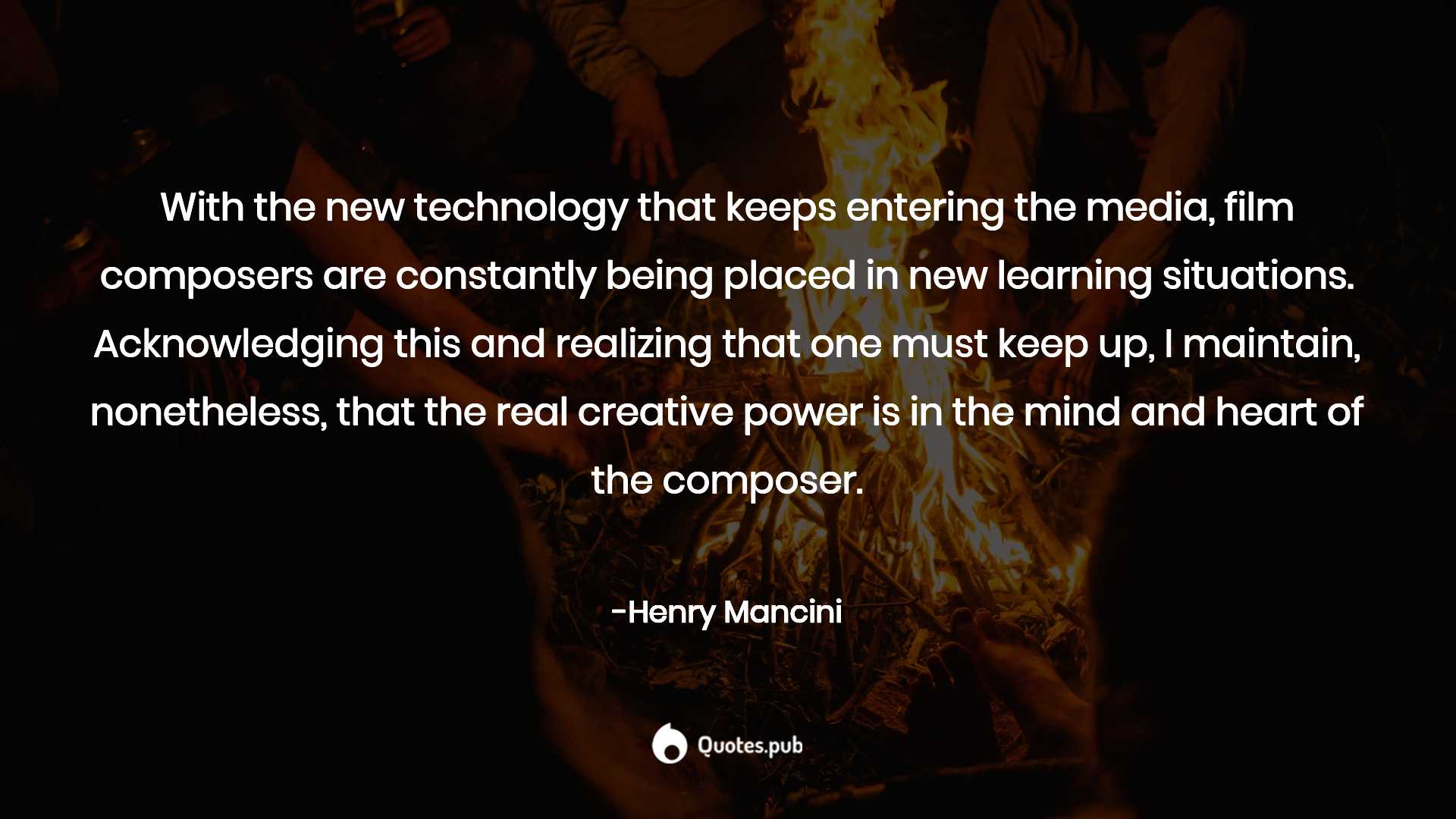
“Love is a very important thing in life. It’s the one thing that keeps us going, that makes life worth living.”
– Henry Mancini, from YouTube
“Love is very important for everybody. That’s why I write a lot of romantic music.”
– Henry Mancini, from Mancini-Online.com
“Love is a very important thing and it’s a very difficult thing to write about.”
– Henry Mancini, from YouTube
“Love is a very difficult thing to write about, it’s so hard to express.”
– Henry Mancini, from YouTube
“I think love is very important and it’s hard to express in music. But I try.”
– Henry Mancini, from Mancini-Online.com
“Love is such a complex thing that it’s almost impossible to capture it in music.”
– Henry Mancini, from Mancini-Online.com
“Love is a very difficult thing to write about but I try to capture it in the music I write.”
– Henry Mancini, from YouTube
6 Henry Mancini Quotes About Life
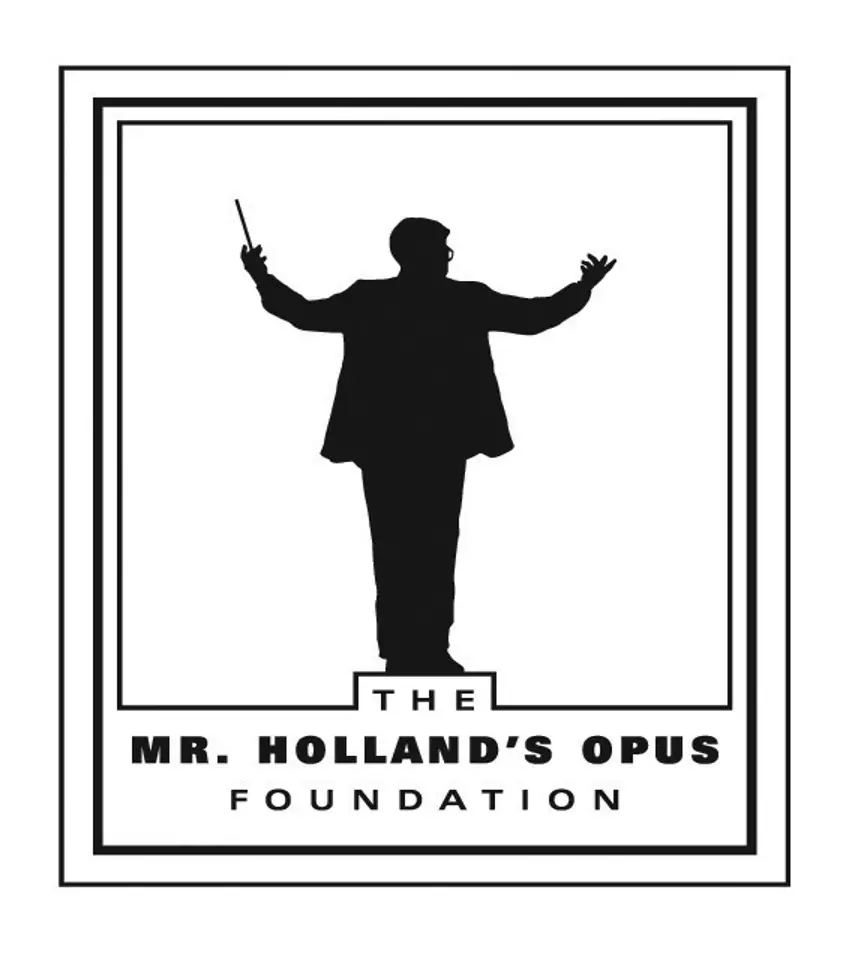
“I think it’s important for me to keep a balance between the music and the other aspects of my life.”
– Henry Mancini, from The Guardian
“Life is not a dress rehearsal.”
– Henry Mancini, from The Hollywood Reporter
“I always look at life as a challenge.”
– Henry Mancini, from Grammy
“I want people to be inspired by my music; to be able to see life in a different way.”
– Henry Mancini, from Grammy
“I love life and life loves me.”
– Henry Mancini, from The Guardian
“I’ve always enjoyed the challenge of life.”
– Henry Mancini, from The Hollywood Reporter
8 Quotes About Henry Mancini
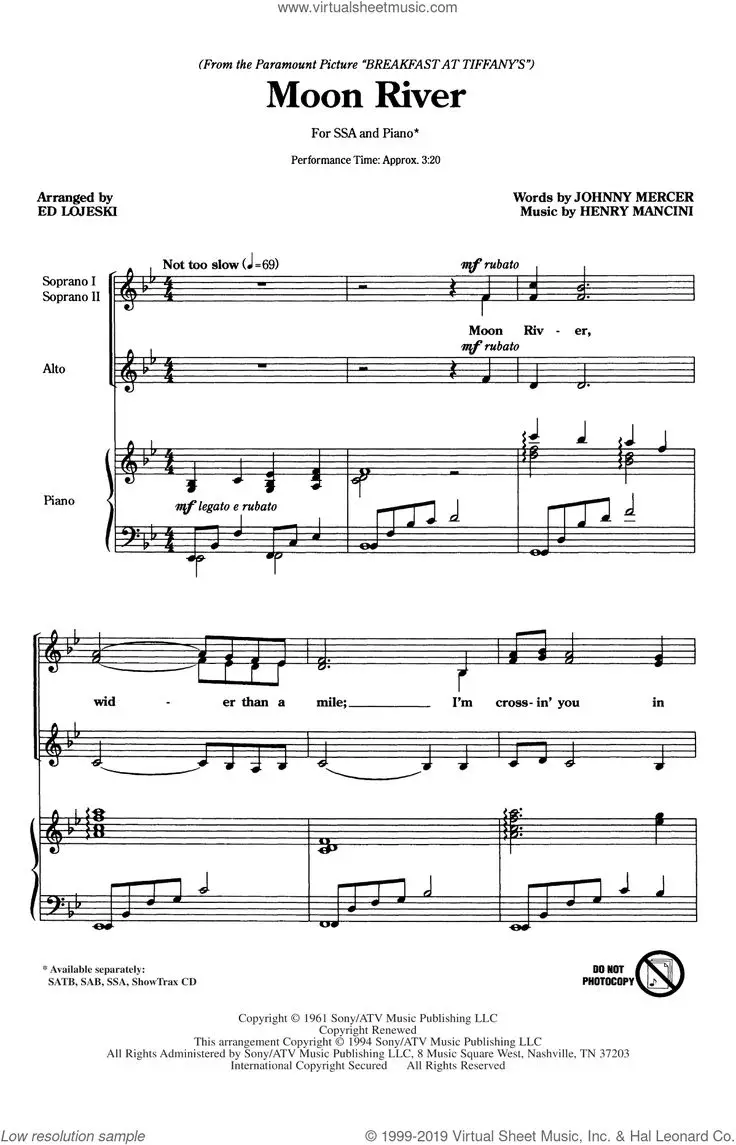
“Henry Mancini’s music was like a warm embrace.”
– John Tesh, from Goodreads
“Mancini’s music, like his life, will endure.”
– Quincy Jones, from Rolling Stone
“Mancini’s music is a classic example of a composer working within the limitations of a genre and still creating something unique.”
– John Williams, from Youtube
“Henry Mancini was a master of melody and a master of mood.”
– John Barry, from AllMusic
“Mancini was a brilliant composer, arranger, conductor and pianist.”
– Johnny Mandel, from The Guardian
“Mancini’s music was the soundtrack of my life.”
– Lalo Schifrin, from AllMusic
“Mancini was a master of film music who could weave a little magic into a movie.”
– Elmer Bernstein, from Youtube
“Mancini’s music had a kind of dreamy, romantic quality.”
– Burt Bacharach, from New York Times
Interview with Henry Mancini
Frequently Asked Questions About Henry Mancini
1. How did Henry Mancini’s career inspire generations of composers?
Henry Mancini was one of the most influential composers of the twentieth century. His career as a composer, arranger and conductor spanned over four decades, and he achieved tremendous success in all three fields. He wrote music that was both popular and sophisticated, and his achievements earned him four Academy Awards, three Golden Globe Awards and twenty Grammy Awards, making him one of the most decorated composers in the history of music.
Mancini’s music was widely appreciated and admired, and it has continued to inspire generations of composers who followed in his footsteps. Here are some of the ways that Mancini’s career has inspired others:
- Mancini’s music was innovative and forward-thinking, and he often used cutting-edge techniques to create his scores. He was not afraid to experiment and use new instruments and techniques to make his music stand out. This willingness to push boundaries has had a lasting impact on composers who have come after him.
- Mancini’s scores were always memorable and captivating, and he was able to write music that was both accessible and sophisticated. He wrote music that was both popular and critically acclaimed, and he was able to bridge the gap between genres and styles. This ability to connect with people and write music that was both popular and sophisticated has been a major source of inspiration for many composers.
- Mancini’s scores were often incredibly complex and layered, and he was able to create a unique sound that was both lush and dynamic. He was a master of orchestration, and his scores often featured intricate arrangements and instrumentation. This attention to detail and mastery of orchestration has been emulated by many composers who have followed in his footsteps.
- Perhaps most importantly, Mancini’s music was always emotive and meaningful. He was able to create music that was both powerful and beautiful, and his scores often conveyed strong emotions and messages. This ability to create music that had a powerful emotional impact has been an inspiration to many composers who have come after him.
Mancini’s career has left an indelible mark on music, and his influence will continue to be felt by generations of composers who have been inspired by his work.
2. What are some of Henry Mancini’s most famous quotes?
Henry Mancini was a prolific composer and arranger, with a career spanning many decades and genres. He was also known for his witty, wise and often surprising quotes. Here are some of his most famous sayings:
- “The only way to get a good score is to write a good score.”
- “I’ve always believed in taking chances and making mistakes.”
- “Music is the one universal language that we all understand.”
- “In the world of music, there are no rules.”
- “I want to be remembered for the way I composed, not for the awards I won.”
- “The difference between a good composer and a great one is the ability to surprise.”
- “I think it’s important to have a sense of humor in music.”
- “If you’re going to write music, don’t let anyone else tell you how to do it.”
These quotes capture the essence of Mancini’s unique style and creative spirit. He was a master at crafting music that was both innovative and accessible. His words of wisdom still resonate today and inspire countless musicians and composers.
3. How did Henry Mancini become a successful composer?
Henry Mancini was a highly acclaimed composer, arranger, and conductor, who rose to fame in the 1950s and 1960s. He is best known for his iconic film scores and popular music, including the theme songs to “The Pink Panther” and “Peter Gunn”.
Mancini’s career began early on, as he began taking piano lessons at the age of four and studied composition in high school. After graduating from the Juilliard School of Music in 1946, Mancini went on to write arrangements for the Benny Goodman and Glenn Miller bands. In the 1950s, he began writing arrangements for popular singers such as Doris Day and Connie Francis.
Mancini’s big break came in 1958 when he was hired as a composer for Universal Pictures. It was here that he wrote the iconic theme for “The Pink Panther” and the score for “Breakfast at Tiffany’s”, both of which earned him Academy Awards.
Mancini also wrote popular music, with hits such as “Moon River”, “The Days of Wine and Roses”, and “Baby Elephant Walk”. He released more than 90 albums throughout his career, earning him four Grammy Awards.
Throughout his career, Mancini received numerous awards and honors, including an Emmy Award, a Golden Globe Award, and an Oscar. He was also inducted into the Songwriters Hall of Fame in 1979 and the Hollywood Bowl Hall of Fame in 1985.
Mancini’s success was due to his unique ability to combine traditional classical music with jazz, pop, and rock elements to create a unique and memorable sound. His music was often lighthearted, fun, and romantic, which made it popular with audiences worldwide.
4. What are some of Henry Mancini’s most memorable movie scores?
Henry Mancini was a legendary composer and conductor who created some of the most iconic movie soundtracks of all time. His work can be heard in films such as Breakfast at Tiffany’s, Charade, The Pink Panther, Hatari!, and The Great Race. Here are some of his most memorable movie scores:
- Breakfast at Tiffany’s (1961)
- Charade (1963)
- The Pink Panther (1963)
- Hatari! (1962)
- The Great Race (1965)
- Victor/Victoria (1982)
- 10 (1979)
- Wait Until Dark (1967)
- The Days of Wine and Roses (1962)
- Touch of Evil (1958)
These scores are just a few of the many memorable works of Mancini. His distinct soundtracks have been featured in countless films, and they continue to influence filmmakers to this day.
5. What was the collaboration style of Henry Mancini when working with other musicians?
Henry Mancini was known for his collaborative spirit when working with other musicians. He had a strong belief that great music was created through a collective effort and collective creativity. His approach to collaboration was characterized by the following qualities:
- Open-mindedness: Henry Mancini was willing to consider and incorporate the creative ideas of other musicians.
- Patience: He was willing to take the time to understand the ideas of others and patiently guide them towards the final product.
- Respect: He was always respectful of the opinions and contributions of his collaborators.
- Creativity: He was constantly searching for new and innovative ways to bring his music to life.
- Compromise: Henry Mancini was not afraid to compromise in order to reach a collective agreement.
Through his collaborative style, Henry Mancini was able to create some of the most iconic and timeless music of the 20th century.
Conclusion
Henry Mancini was a widely respected and admired composer, arranger, and conductor who made a lasting contribution to popular music. His compositions and arrangements were unique and unmistakable, and his work is still frequently heard today. His distinctive sound and style will live on in the memories and recordings of music lovers everywhere.

